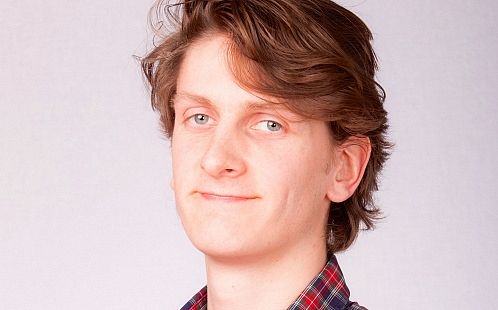Six international student societies at TU Delft have joined forces with Student Council group Oras to form InterDelft. Their aim is to attract more members – especially Dutch students.
According to the chair of the new joint venture, Civil Engineering student Ben Visser, many of them still see little point in developing international contacts.
InterDelft claims that there is a yawning gap between Dutch and international students. Why does that need to change?
“I always think back to my very first experience with international students. That was in my previous role as chair of IAESTE [International Association for the Exchange of Students for Technical Experience – ed.]. There was a week-long conference, and it was then that I realised how enjoyable it can be when people open up to each other’s cultures. I really clicked with a group of Turkish students. I’ve been a member of student society Virgiel, but partying with those Turks was so much more fun than any of the other parties I’d attended in Delft. Encountering other cultures is very special. Things in Poland or Slovakia may not be organised as well in many respects, but they do know how to party. They really are at the next level. You learn that things can sometimes be better in other places, more fun. You gain respect for other cultures. Of course, the politically correct answer to your question is that technological advances and globalisation are forcing engineers to work together in international teams, and there you need to know how other cultures think.”
How do you view the attitude of Dutch towards international students?
“We’re working with people from the university, like Danielle ten Veldhuis [Communications Adviser – ed.]. According to her, there are four stages in opening up to other cultures. The first is to deny that you can learn anything from them. The second is acknowledging them, without wanting to leave your own comfort zone. But I think the average TU Delft student is in the third stage: acceptance. That is, you accept that other cultures do things differently, but you also say, ‘I still do things my way’. The fourth phase is adaptation, when you combine the good points from different cultures. That’s where we want to go: towards a global mind. International students have that global mind, otherwise they wouldn’t be here. Now we want to lift the Dutch students into that fourth phase.”
How do you get them there?
“To start with, we want to target students with experience abroad. They already have a global mind. But their enthusiasm often ebbs away once they return to the Netherlands and fall back into familiar social circles. In partnership with the university, we want to make these returnees coaches for groups of international students during their introductory programme. There are far too few of them at the moment. Guided by the university’s International Office, the coaches focus on practical matters like completing official forms, going shopping and repairing bikes. InterDelft wants to help them with an evening programme for their students, too, comparable with the Owee [reception week – ed.] for Dutch first-years. They could visit student societies, for example, take workshops or visit a festival.”
And after that introductory fortnight?
“We want to keep the contacts alive by organising activities throughout the year. By linking up with existing buddy programmes, for instance. And rounding it all off with a global village in the free zones on campus. Each international society can organise something for that. We also hope that the coaches will draw in their own Dutch friends, so that the circle expands year on year.”
The participants in InterDelft are AEGEE, AIESEC, BEST, DISS, IAESTE, ESN and Oras.



Comments are closed.